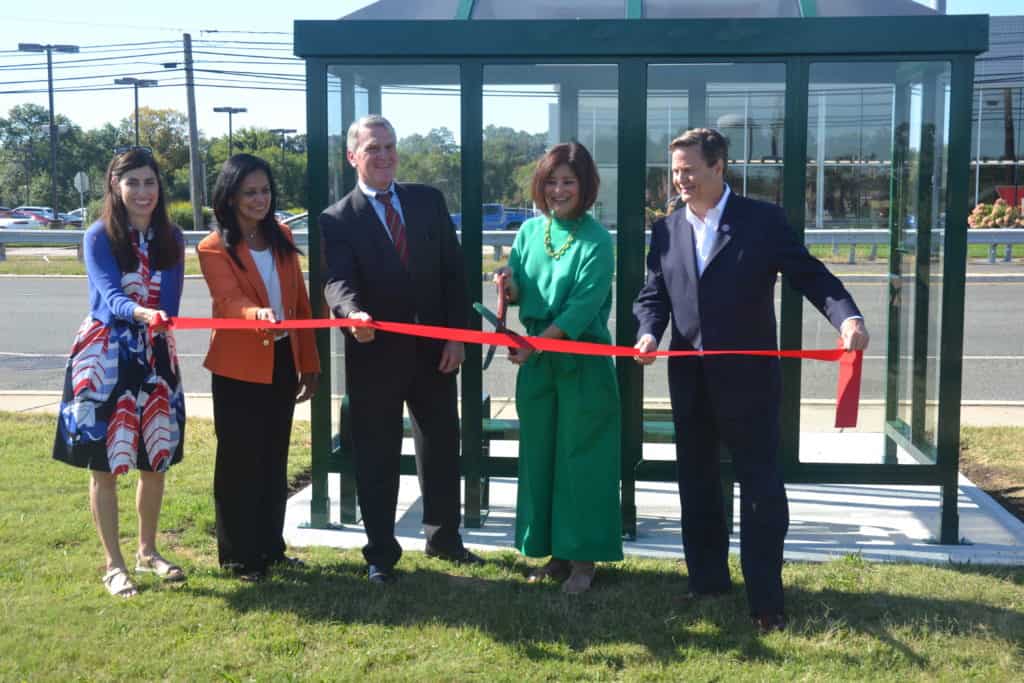

Travelers who move through Cherry Hill’s western section to use public transportation stand a good chance of feeling more secure and more connected — especially as the coming months herald shorter days and less sunlight.
NJ Transit’s bus shelter along Route 70 West at its intersection of Cornell Avenue is the first of its kind to utilize solar panels that will be placed on the roof. The panels will harness the sun’s power to charge a battery that will operate the shelter’s lights after sunset, and will also power a USB charging port.
The unveiling occurred on the morning of Sept. 27, with Mayor Susan Shin Angulo joining Congressman Donald Norcross, council member Sangeeta Doshi and other dignitaries from the region in a ribbon-cutting ceremony.
“The construction of this solar-powered shelter marks an important step forward in both NJ Transit and Cherry Hill’s shared dedication to supporting sustainability and smart renewable energy solutions,” said Doshi, who also has a seat on the state transport organization’s board.
“Through this collaborative partnership, we are paving the way for a new generation of forward thinking public transportation assets and services,” she added.
The new shelter serves NJ TRANSIT’s bus route No. 406, which currently stops in Berlin, Marlton, Cherry Hill, Pennsauken and Camden before ending its run in Philadelphia. The 406 line averages roughly 800 customers on weekdays, with about 60 passengers using the Cherry Hill shelter.
In addition, the upgraded stop is ADA accessible and measures 5 feet by 10 feet. To accommodate those expanded dimensions, a 12-by-12 foot concrete pad was laid beneath the shelter’s footprint. .
“I’m very happy NJ TRANSIT was able to put this solar-powered bus shelter in place, moving them a step closer to its goal of zero emissions by 2040,” Norcross noted.
“It’s going to be added benefits like phone charging, or even something as simple as shade or a roof in the rain, that makes public transit a more attractive transportation option for Cherry Hill,” he added. “Increasing public transit ridership will be important to meeting the challenge of climate change.”
Unveiling solar-powered shelters is one way state agencies are trying to address Gov. Phil Murphy’s clean-energy strategy, unveiled in January 2020. At that time, Murphy outlined goals of 50 percent clean energy by 2030, and 100 percent clean energy by 2050.
NJ Transit spokesman Jim Smith said the organization would evaluate the performance of the shelter over the next 18 months before determining the possibility of expanding the installation program to other parts of the state.









